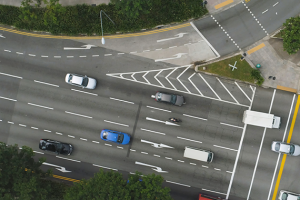
March 11, 2024
Mizzou Engineer leads synthesis to study safety roadway countermeasures
A Mizzou Engineer is leading a project to help determine what measures state departments of transportation (DOTs) are using to help keep motorists safe. Henry Brown, a research engineer in the Department of Civil and Environmental Engineering, is Principal Investigator on the synthesis, which is under the umbrella of the National Cooperative Highway Research Project (NCHRP). Findings are expected to be published by the National Academies of Sciences, Engineering, and Medicine next year.
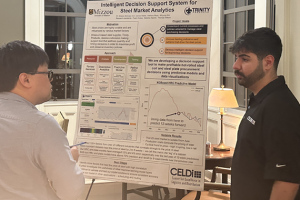
March 11, 2024
Ph.D. student earns first in poster competition at CELDi research symposium
Pyam Oveys, a Ph.D. student in industrial engineering, took first place in the poster competition at the Center for Excellence in Logistics and Distribution (CELDi) Annual Meeting and Research Symposium held Feb. 29-March 1 at the University of Arkansas in Fayetteville. Oveys is working as a graduate research assistant for a sponsored research project with Trinity Products, which is being led by MU faculty members
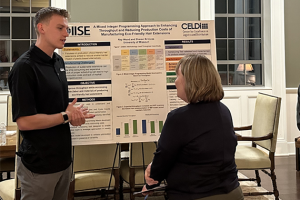
March 11, 2024
Engineering student takes first at IISE Regional Conference Paper Competition
A Mizzou Engineering student took first place in the Paper Competition at the Institute of Industrial and Systems Engineers South Central Regional Conference, held Feb. 29-March 2 at the University of Arkansas in Fayetteville. Ray Wood, a master’s student in industrial engineering, presented a use-inspired workforce optimizing and process to solve problems manufacturers face when using sustainable materials.
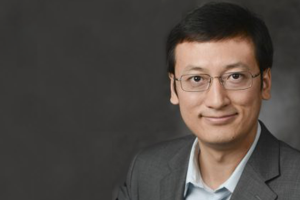
March 8, 2024
Xiao recognized with Excellence in Research Award from Environmental Science & Technology journal
Mizzou Engineering’s Feng “Frank” Xiao has been recognized with an Excellence in Review Award from Environmental Science & Technology (ES&T), the premier journal in environmental engineering and science.
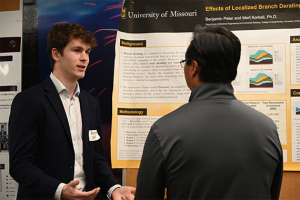
March 8, 2024
Mizzou Engineering hosts MOCAP; students earn awards for research posters
Mizzou Engineering last month hosted the 2024 Spring Summit for the Missouri Center for Advanced Power Systems (MOCAP),
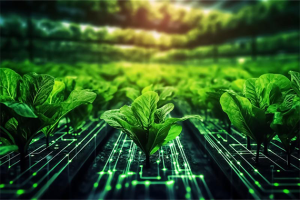
March 5, 2024
Engineer leveraging AI to help collaborators develop fungicides, prevent crop loss
Plant diseases destroy 125 million tons, or $220 billion worth of soybeans, corn, wheat and other crops in North America every year. Now, a Mizzou Engineer is leveraging artificial intelligence to help collaborators prevent that loss.
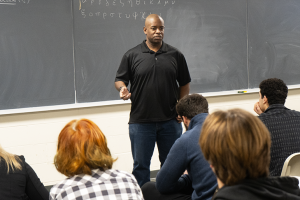
Feb. 27, 2024
Overcoming Obstacles and Encouraging Others
Teaching has always come naturally to Reginald Rogers, associate professor of chemical and biomedical engineering, Rogers shares his story to give students hope and encourage them to accomplish difficult things. A shelf full of teaching awards affirm that his philosophy is making an impact.

Feb. 23, 2024
Engineering a revolutionary method to measure cardiovascular stiffness
In a discovery that could revolutionize precision heart health care, Mizzou Engineering researchers have developed a way to measure cardiovascular stiffness—or the rigidity of arteries in your heart—based on data already being collected by traditional echocardiograms. “I consider this the most important work I’ve done in my career,” Professor Noah Manring said.
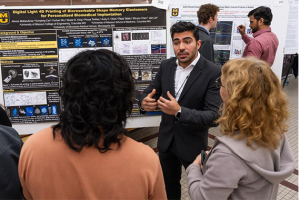
Feb. 21, 2024
Team develops prototype for 4D printed medical implant that promotes regeneration of soft tissue
A Mizzou Engineering research team has successfully developed a prototype for a personalized medical implant that promotes the regeneration of soft tissue. The key is 4D printing, a 3D printing technique used on smart materials capable of changing function based on specific conditions.
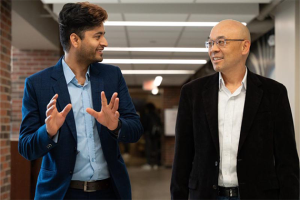
Feb. 12, 2024
Elevating excellence for tomorrow’s innovators: Jianlin ‘Jack’ Cheng
Jianlin “Jack” Cheng is passing on his knowledge and preparing the next generation to solve some of society’s most pressing issues.